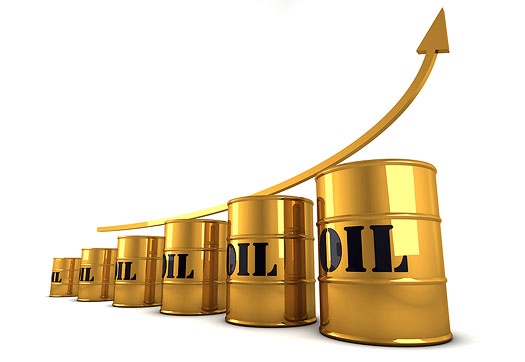
Iran Seems to Expand Oil Production by 500,000 Barrels
The economy of Iran has always been dependent upon one of the most profitable and important sectors, namely gas and oil production. Generally, situation at the Iranian oil production market remained stable for years, but several years ago, this situation has notably worsened. According to the recent data provided by the industry experts, the price of one barrel of crude oil does not exceed $30 today, which is the lowest level observed throughout the previous 13 years. This is simply inadmissible and has already triggered financial problems in lots of enterprises that are involved in crude oil. The notable decline in the sector has forced dozens of national and private oil and gas production companies to seek investment opportunities abroad, which has negatively affected this sector of the country’s economy causing lots of structural problems.
Iran Is Going to Increase Its Daily Oil Production
The situation has become even more complicated after the fail of the major Saudis oil manufacturers to agree on a production cut. The two most powerful manufacturers of oil have recently reached a mutual agreement to freeze the production of oil at the levels, which are observed in the industry nowadays. Iran reacted to the agreement in the unpredictable way, having promised to increase the production of oil by 500000 barrels per day.
According to the report made by Roknoddin Javadi, the Deputy Oil Minister of the country, “Iran aims at retaking its oil market share, which plunge after the implementation of 2012 sanctions”. With this purpose, the country has already met the previously provided U.N. Nuclear Agency commitments, thus demonstrating their readiness to improve the current situation in the oil market.
What Is Going to Change?
Recent data show that the previous oil export volume observed in Iran constituted 2.3 million barrels during a day. After the introduction of 2012 sanctions, the export of crude oil has notably worsened, having decreased to 1 million barrels per day only. As of today, the country produces about 3 million barrels of crude oil during a day, but this is not enough to cover the needs of the global oil market. However, the government of the country promises to expand the crude oil output by 500000 barrels per day in case the previously imposed sanctions are removed. Roknoddin Javadi underlines that the process will not be as rapid as it is desired and it may generally take about one year to switch to those oil levels, which were observed before the impose of sanctions. The government of the country has already made the first steps in this direction by issuing an order to increase the volumes of oil.
The Deputy Oil Minister of the country admits that worsening of the situation in the oil market and rapid decrease of crude oil prices up to $30 per a barrel were the result of oil and gas oversupply, which constituted over 2 million barrels per day during the previous years. This is the worst index observed during the previous years.
The Expected Outcomes
Experts admit that it is currently impossible to tell what impact the Iran’s decision will have upon the global oil production market. They suppose, however, that the country will have to use its onshore and offshore oil supplies to demonstrate their world power and leadership in the industry. According the recent estimations, Iran has over 46 million barrels of oil in its offshore storage and about 35 million barrel of petroleum onshore.
At present, the country undertakes all the possible measures to beat their major regional competitor, Saudi Arabia, which is currently the OPEC’s leading manufacturer of crude oil. They are going to increase the export of oil even in case the oil prices will continue falling. They also intend to encourage foreign companies to invest in the industry, taking into account the potential lift of sanctions. But that’s not it. The country has promised to make the $30 billion investment in the new long-term contracts that aim at resuming the maximum oil recovery volume. This should bring the expected profits during the next 15-20 years. Short-term deals will not be that effective and may trigger more potential risks and financial losses for the investors.


